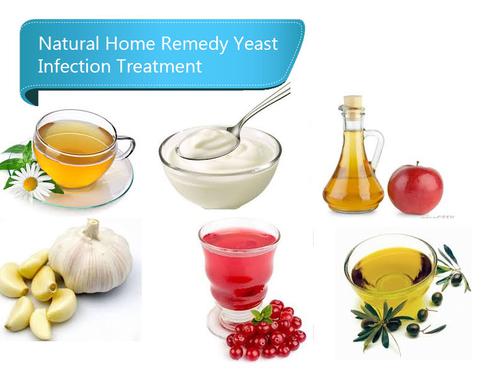Yeast Infection: How Long Can It Last?
Yeast Infection
A yeast infection is a condition which typically appears on the skin or mucous membranes of the body and is caused by the fungus called candida. It can last for a few days and even stay for more than two weeks in severe cases.
Course of Yeast Infection
1. On the Basis of Health
The facts say that there is no fixed answer to how long a yeast infection lasts. It varies from one person to another because the health and immune system of every person is different.
2. The severity of Infection
Generally, a mild yeast infection disappears on its own within five to seven days. This may or may not even require any treatment. But, sometimes the infection grows severe and even with a treatment, it takes much longer to go away.
3. On the Basis of Body Parts
Moreover, the duration of a yeast infection also depends on the body part where it is spreading. Nails would take much longer to recover from a yeast infection than the skin. In women, candidiasis is a recurring problem that takes its own time to heal.
Factors Responsible for a Yeast Infection
1. Use of Antibiotics
Antibiotics are hard in nature and kill even the useful bacteria in our body. When the yeast attacks, the fighting bacteria are either absent or quite low in number. For this reason, taking broad-spectrum medicines mostly contributes to candidiasis in women.
2. Diabetes
Abnormal blood sugar level increases the chances of developing a yeast infection. A diabetic person is more susceptible to these fungal attacks due to weak resistance in the body.
3. Pregnancy and Other Hormonal Changes
Pregnancy creates a rollercoaster of hormones and can lead to candidiasis. Fluctuating levels of estrogen, released during pregnancy, menstrual cycle, or while taking birth control pills is a major cause of candidiasis.
4. Low Immunity
When the defense system is down, more microorganisms attack and successfully thrive in the body. People who have AIDS, HIV and cancer become infected more frequently and for a longer time.
5. Other Risk Factors
Having unprotected sex, not maintaining proper hygiene, wearing tight and synthetic clothes, using too much sugar, etc. are some of the bad choices that cause yeast infections.
Treatment for Yeast Infection
No matter how long it takes for a yeast infection to go away, you can always do something about it. Some home remedies have been seen to be highly effective as a treatment, but it is important to remember that these should never be pursued without a professional consultation. In case the problem persists or becomes worse, immediately talk to your doctor about it.

1. Home Remedies
-
Coconut Oil Coconut oil has properties of cooling off the skin. It diminishes irritation and soothes rashes. Coconut oil can kill candida yeast without any side effects. For better results, you can use a tablespoon or two of warm coconut oil and apply it directly to the affected area.
-
Tea Tree Oil With many medicinal benefits, tea tree oil has a healing effect. Instead of using it directly, mix a few drops of coconut oil in it and then apply. This is extremely helpful in vaginal infections.
-
Yogurt Filled with probiotics, yogurt is one of the best natural remedies to get rid of the yeast infection. Just rub some cool yogurt on, leave it for 15 minutes, and use lukewarm water to wash it off.
-
Apple Cider Vinegar Apple cider vinegar (ACV) has the same pH as our human body. Dilute some ACV in few tablespoons of water and dab it on with a cotton ball. Let it stay for 20 minutes and then clean it with warm water to kill the infection.
-
Boric Acid It's quite a powerful remedy. Just mix the water and boric acid in the ratio of 2:1. Cover the infected area with this paste and be careful to not keep it too concentrated. If you are pregnant, avoid this method.
2. Over-the-Counter Drugs
There are plenty of creams, gels, ointments, and even oral medications available over the counter. You can opt for short-term or long-term courses, depending upon the severity of the infection.
3. Healthy Habits
Wearing loose cotton clothes, drinking sufficient water, avoiding sex for a period of time, eating healthy foods, and maintaining hygiene would definitely slow down the infection.
4. Meeting the Doctor
If none of these remedies work and the infection keeps spreading, you should see the doctor and get a proper consultation. Apart from that, it is not to try these home-remedies without the doctor's approval.
Summing Up
How long a yeast infection lasts depends on several factors! Some basic changes in lifestyle and a professional consultation can heal it within a week. It may take longer if the yeast infection is severe. In special cases, the home remedies should not be followed without first asking your doctor.
YOU MAY LIKE
-
Best Tips to Get Rid of Milia
-
Top 9 Proven Ways to Get Rid of Head Lice
-
How to Treat a Boil - Best Home Remedies
-
Key Causes and Best Remedies for Itchy Bum Hole
-
Coconut Oil: A Cure for Yeast Infections
-
Wondering How Long Does Sunburn Last?
-
Brown and White Crusty Spots on Skin: Top Causes and Treatments
-
Bumps on Your Vaginal Area After Shaving
-
Best Tips to Remove and Prevent Burn Scars on Skin
-
Stages of Herpes and Top Treatment Methods
